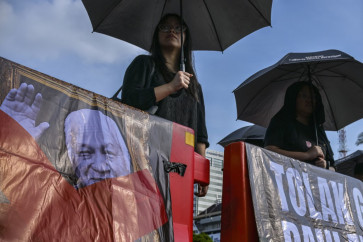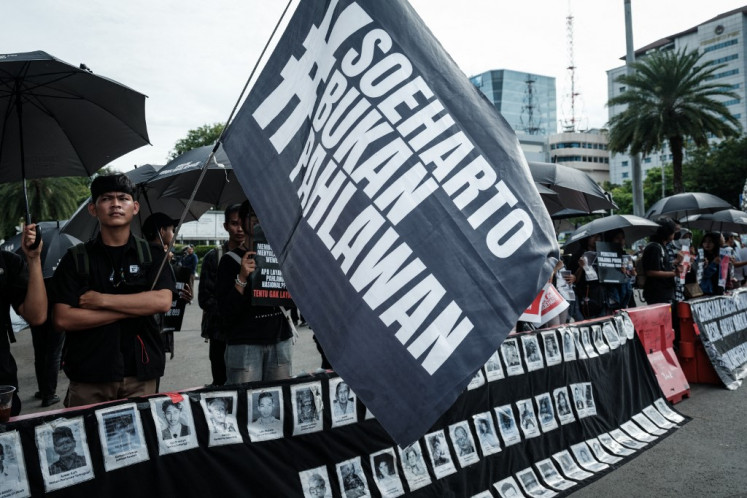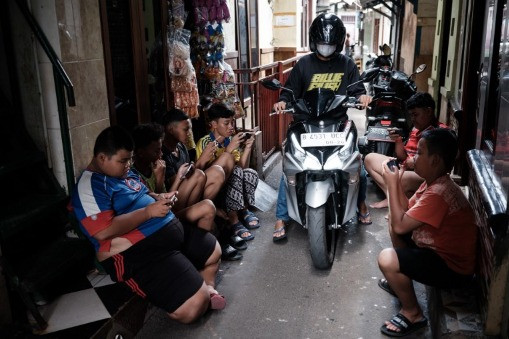Popular Reads
Top Results
Can't find what you're looking for?
View all search resultsPopular Reads
Top Results
Can't find what you're looking for?
View all search resultsLogistics firm ESL Express goes digital to step up business
The logistics industry has been given a boost in growth since e-commerce has boomed in the Indonesian market, with many firms either partnering with e-commerce platforms or launching their own digital services, one being ESL Express
Change text size
Gift Premium Articles
to Anyone
T
he logistics industry has been given a boost in growth since e-commerce has boomed in the Indonesian market, with many firms either partnering with e-commerce platforms or launching their own digital services, one being ESL Express.
ESL Express — a unit of the publicly listed transportation company Eka Sari Lorena Transport (LRNA) — announced on Wednesday what it said is a game-changing feature: an Android app that brings logistics services into the palm of one’s hand.
Taking cues from other local logistics companies like JNE and Tiki, the new app boasts the ability of ESL Express users to make orders and track them on a more personal level.
ESL Express managing director Eka Sari Lorena said the company would try to use the digital tools that had shaped the transportation industry, possibly with the e-commerce industry and ongoing digitalization of its services.
“Quite simply, our systems and service must be developed to keep up with the pace of innovation, but it’s not entirely up to us. We as a business also need efforts by the government to make it easier to compete,” Eka said, adding that those efforts could include cutting bureaucratic red tape to pave the way for higher competitiveness.
The new app is expected to increase the size of ESL’s customer base in 2017 because of its online accessibility.
Having begun as a bus company, the 21-year-old ESL Express has already fared well in terms of connectivity as it serves very rural areas.
It currently has 78 branches and more than 500 agents nationwide and claims to be the third-largest logistics network in Indonesia, with an average of 1 million customers served every day.
Its revenues totaled more thanRp 100 billion (US$7.42 million) so far in 2016.
Meanwhile, data from the Indonesian Internet Providers Association (APJII) has reiterated that weak logistics infrastructure remains the main hindrance for digital marketing in Indonesia.
This is in spite of a rising number of internet users in Indonesia, about 132.7 million as of this year, 64.5 percent of whom claim they use the internet for online transactions.
Some digital businesses, such as e-commerce platform Lazada Indonesia, have bypassed this problem by launching and using their own in-house services, but the reality is connectivity has yet to keep up with digital demand, Archiss Digital marketing expert Abah Raditya said.
“From what I see, the availability of logistics apps on smartphones is crucial because that’s what encourages the digital economy nowadays. People want to know where their deliveries are and are always anxious about when they would get them. The rise of smartphone usage in Indonesia now limits that patience,” he said.










